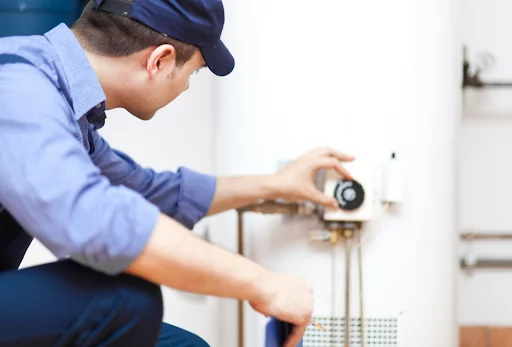
Too often, people realize they need to replace their water heater when they step into the shower, bleary-eyed, first thing in the morning, and are greeted with ice-cold water. Sure that might wake them up, but it also wakes them up to the fact that they could need a new water heater.
To avoid that Arctic assault from reoccurring, replacing your water heater might seem like the obvious next step. In our most recent blog, the licensed plumbers at Ravinia Plumbing, Sewer, Heating & Electric discuss some common signs that indicate it’s time to replace your home’s water heater.
Signs It’s Time to Replace Your Water Heater
Old age
Know how old your water heater is. You can expect it to last on average of 10-15 years. If it is getting up there in years, you might want to be proactive and replace it even if it seems to be working fine. This can prevent a complete breakdown from occurring out of the blue, which can cause significant damage if it’s accompanied by a leak.
Frequent repairs
If you’ve had your water heater repaired frequently over the past couple of years, it’s probably worth replacing it with a new unit. Put the hard-earned money you’re pumping into repairing your aging system into the purchase of a new water heater. A new unit will run more efficiently and save you the worry of an unexpected breakdown.
How does the water feel?
Your water heater is probably broken if you turn on the water expecting hot water, but it is ice cold. Also, if you notice the water is turning cold quicker than it used to, that is another indication it may be time to replace your unit.
Pooling water
If there is standing water around the tank, or a stream of water running from the tank to the floor drain, that could indicate a major leak and the need for a new heater. It’s important to have the leak fixed or the water heater replaced as soon as possible to prevent significant water damage from occurring. Water heaters commonly leak from pipe connections, the cold water valve, the drain valve, the expansion tank, and the TPR valve.
Check the fittings and connections
If there is water, sludge, or corrosion, that could indicate a leak. This issue is often indicative of an older unit, meaning it may be time to replace the water heater.
Use your ears
Yes, your ears. If the hot water heater is making clanging, popping, or knocking noises, there may be a problem. These noises can occur when excess mineral or sediment called scale has collected at the bottom of the water heater. A reduction in water volume due to the scale can cause bubbles to rise, which can cause a popping or knocking sound.
Contact Ravinia Plumbing for Water Heater Repair or Installation Service
Of course, if you aren’t sure, call us. We’ll be happy to come out and take a look at your water heater, and advise you on the proper action to take. For your water heater or plumbing needs, contact Ravinia Plumbing to schedule an appointment.




